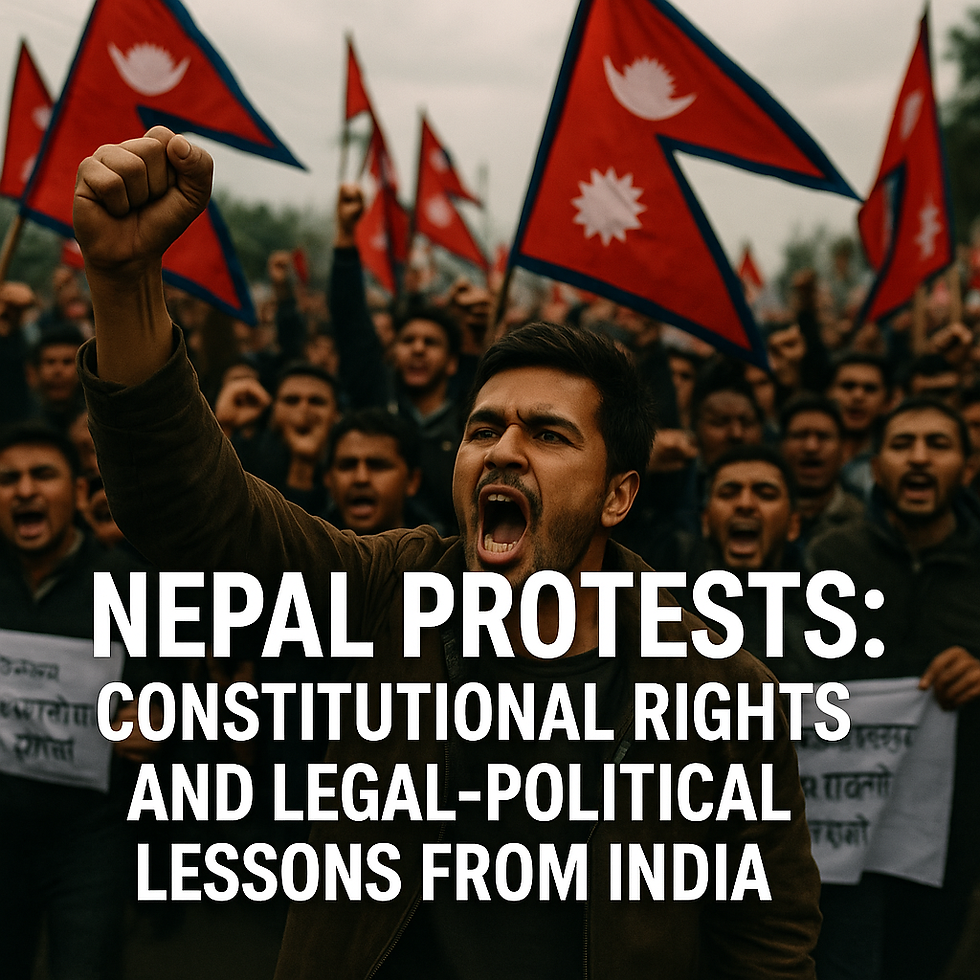Bombay High Court Acquits All in 2006 Mumbai Train Blasts - Prosecution Fails to Clear Critical Hurdles
- Amit Tiwari

- Aug 25, 2025
- 2 min read

On July 21, 2025, a division bench of Bombay High Court, comprising Justices Anil S. Kilor and Shyam C. Chandak, quashed the convictions in the 2006 Mumbai train blasts. The court annulled the death sentences and life terms awarded in 2015 under MCOCA and the NIA Act, ultimately acquitting all 12 accused, including one who had died in custody.
Legal Grounds for Acquittal
Failure to Prove Case Beyond Reasonable Doubt
The High Court explicitly held that the prosecution “utterly failed to establish the offence beyond reasonable doubt against the accused on each count”
Eyewitness Testimony Rendered Unreliable
Identification by witnesses was deemed unsafe. The court pointed out serious flaws such as delayed statements - some witnesses remained silent for months or years before identifying the accused - and improper conduct of identification parades. These factors undermined the credibility of eyewitness accounts.
Confessional Statements Discarded
Confessions relied on in the trial were found to lack procedural integrity. The court noted failure to adhere to mandatory safeguards under MCOCA - no proper 'cooling-off' period, lack of medical examination, possible coercion, and absence of required certification - rendering the confessions inadmissible.
Physical Evidence and Recoveries Discredited
Recoveries of RDX, detonators, and circuitry were not supported by a proper chain of custody. The court emphasized that forensic relevance was compromised due to inadequate sealing, documentation, and transfer to forensic laboratories.
Circumstantial Evidence Insufficient
Elements such as call-data records, travel history, and alleged associations with terror outfits were deemed insufficient to meet the threshold for conviction, especially for capital punishment. The court stressed that justice should not ride on incomplete or weak circumstantial links.
Illusion of Resolution Criticized
The High Court issued a strong rebuke of the prosecution’s approach: constructing an appearance of having solved the case without actually meeting legal standards “gives a misleading sense of resolution” and undermines public trust.
Legal Significance
This judgment reaffirms foundational criminal law principles - particularly, that convictions must rest on unimpeachable evidence, reliable witness testimony, and strict adherence to procedural safeguards. Even in terrorism cases, judicial scrutiny of investigative processes remains non-negotiable. The ruling underscores that a flawed process cannot deliver justice, however compelling the narrative appears.
Subsequent Developments
The Supreme Court has placed an interim stay on the precedent value of this judgment. While the acquitted individuals remain free for now, the legal fate of the verdict remains subject to further judicial review
Disclaimer:
This post is intended solely for informational and educational purposes. It is not a substitute for legal advice and should not be relied upon as such. Readers are advised to seek professional legal counsel for advice specific to their circumstances. This blog does not create an attorney-client relationship.



Comments